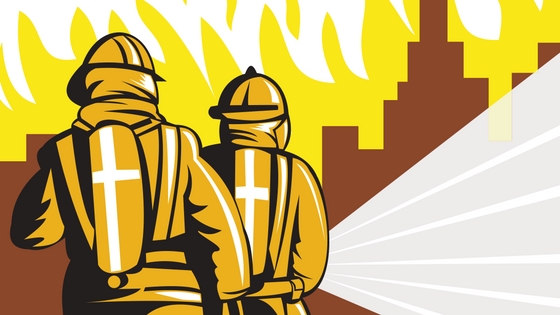As part of our continuing coverage of Whitemarsh Township’s new fire services plan, we have been examining the decision making process that determined that the Lincoln Fire Company would be excluded in the creation of a new plan and effectively shut down. The Lincoln Fire Company and the public were unaware of the creation of a new plan until a letter was issued by the township announcing it would be discussed at a public meeting that was held on November 21st. Whitemarsh Township’s Board of Supervisors is set to vote on amending its fire services ordinance on Thursday, December 1st.
Here is what we find interesting. Whitemarsh Township has a Emergency Services Board, which according to the Whitemarsh Township website plays the advisory role regarding fire and emergency services in the township. From the township’s website:
The Emergency Services Board assists in the provision of primarily volunteer emergency services in the township, proposes amendments to the Fire Prevention Code, regulations and other codes and reviews and makes recommendations to the Board of Supervisors concerning any proposed changes to the code or its regulations, and advises the Board of Supervisors from time to time on all matters involving the provision of volunteer emergency services in the township.
Membership on the Emergency Services Board consists of 4 representatives from township residents (1 from each Fire District, who may not be a member of a Whitemarsh Township volunteer emergency service agency plus 1 at-large representative), the volunteer emergency service agencies, the Whitemarsh Police Department, Board of Supervisors and township staff.
This raises the question as to whether the Emergency Service Board was involved in the task of creating the new fire services plan. The above clearly states that the creation of such a plan is within its purview. This morning MoreThanTheCurve.com submitted a “right to know” with the township for the agendas and minutes from the meetings that occurred in 2016. These are not posted on the township’s website as the agendas and minutes of the township’s various other boards are.
What is interesting about whether the Emergency Services Board addressed this plan is that the Lincoln Fire Company has two seats on this board. How did the members of the Lincoln Fire Company not know of the creation of the new plan if it was an issue before the Emergency Services Board? Did representatives of the Lincoln Fire Company not attend the meetings? We’re they excluded? Or was the plan developed without any input from the Emergency Services Board? MoreThanTheCurve.com has also submitted a “right to know” requesting agendas, minutes, notes and any correspondence regarding the development of the new fire services plan outside of the Emergency Services Board.
During the public meeting on November 21st, the chair of the Emergency Services Board, John Lukens, spoke in support of the new plan. He stated that he had been involved and it wasn’t a task “we” took lightly. So does that mean he took part as the chair of the Emergency Services Board or a smaller committee outside of the Emergency Services Board? If it was outside of the Emergency Services Board, is it prudent to take specific members (Lukens and two of the three fire companies) and task them with something that is clearly under the purview of the entire board? Could it be argued that this group basically conducted the business of the Emergency Services Board off the radar so to keep Lincoln Fire Company, and consequently the public, in the dark?
Due to the five day period the township has to provide the materials we seek via the “right to know” laws, we may not be able to do a follow-up to this story prior to the meeting on December 1st.
If you are interested in watching the public meeting held on November 21st, click here.
Please note that Emergency Services Board is advisory. The Board of Supervisors can completely ignore its recommendations, just as it can for the Planning Commission, Environmental Advisory Board, etc.
More to come.

